Every relationship has its share of disagreements and fights. However, dealing with relationship anxiety can make your love life feel really stressful. Today we are going to talk about the what is relationship anxiety, signs of relationship anxiety and how to deal with relationship anxiety.
Anxiety is common at the beginning of a relationship, but relationship anxiety can continue for the long term. It refers to intense worry, fear, doubt, and insecurity about a relationship and is associated with interpersonal dependency and interpersonal avoidance.
Insecurity about ourselves, our boundaries, and our self-esteem can cause relationship anxiety. Women are more prone to this than men.
Related: 12 Symptoms Of Post Relationship Stress Disorder
What Is Relationship Anxiety?
It’s a form or symptom of codependency rooted in toxic shame and low self-esteem. The need for validation and love compensates for deep feelings of unlovability.
However, because we don’t feel deserving, we can’t accept that we’re loved. We assume others judge us as we judge ourselves. Anticipating this breeds anxiety.
Due to fear of rejection or being scrutinized, people with relationship anxiety may avoid situations that risk evaluation by others – especially significant others.

This protective defense is counter-productive because it can add to feelings of isolation and unworthiness and deprive a person of intimate relationships and necessary social support and activities.
It can cause sabotaging behavior and generate distrust, conflict, emotional stress and exhaustion, and apathy.
Signs include constant worry and reassurance seeking. People with relationship anxiety try to make a good impression to avoid judgment.
In order to accommodate their partner and avoid abandonment, they people-please and are inauthentic. They withhold thoughts and feelings and don’t set personal boundaries to not make waves.
Signs of Relationship Anxiety
Here are some typical behaviors you might engage in:
- Obsessing about what’s wrong with the relationship rather than what’s right.
- Doubting whether your partner sufficiently loves you.
- Worrying whether the relationship will last.
- Breaking up to avoid rejection.
- Avoiding eye-contact.
- Doing things to avoid intimacy, such as looking at your cell phone, TV, computer, excessive housecleaning.
- Avoiding sex, saying “I love you,” or statements about commitment, being seen as a couple, or meeting each other’s friends and family.
- Negatively comparing your relationship to past relationships or those of other people.
- Focusing solely on incompatibilities.
- Expecting something will go wrong and lead to emotional abandonment.
- Frequently feeling hurt and unimportant, which accompanies low self-esteem.
- Over-analyzing and doubting your partner’s words and behavior.
- Feeling distrust, envy, jealousy, and shame, and being suspicious without good cause.
- Controlling and possessive behavior.
- Acting needy and demanding attention and reassurance.
- Silencing your thoughts, needs, and feelings or hiding personal information that you fear will jeopardize the relationship.
- Starting fights or testing your partner for reassurance; e.g., flirting, threatening a breakup.
Shame and fear create cognitive distortions that negatively skew perceptions of reality and others’ intentions and behavior. This in turn makes you unhappy and reinforces shame and trauma.
Relationship anxiety can manifest physical signs of anxiety, such as tightness in the chest, rapid, shallow breathing, stomach problems, increased pulse, sweating, chills, flushing, nervousness, intense worry, chest pain or pressure, trembling legs, or feeling faint.
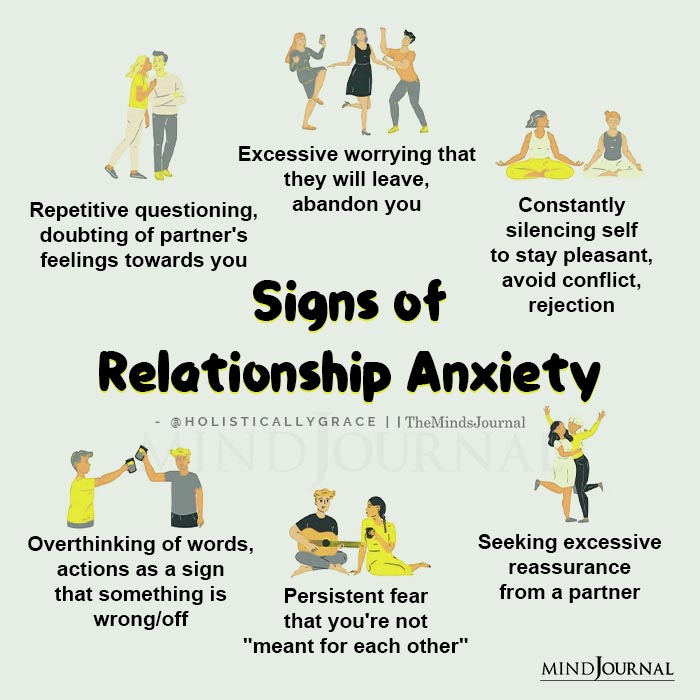
The Cause of Relationship Anxiety
The cause lies in childhood due to parental shaming and abandonment trauma. A parent may have been dysfunctional, toxic, or abusive, narcissistic, perfectionistic, distant, or invasive.
The now adult child may behave like that parent or project that behavior onto their partner. If you were criticized, controlled, or ignored, you may assume your partner is doing that also. It’s helpful to do a reality check with other people or a therapist.
People with relationship anxiety have an insecure attachment style, which may be avoidant or an anxious attachment and dependency on another person. The former avoids intimacy, while the latter often feels hurt and blames their partner for their feelings.
They may get into relationships with other who are also insecure, who are abusive, and/or emotionally unavailable and thus repeat a cycle of abandonment. These experiences then prime them to be hypervigilant and get triggered by any sign of withdrawal or rejection.
Related: 4 Things To Remember While Dating Someone With Anxiety
Help for Relationship Anxiety
Instead of being indirect, questioning, or silencing your needs, learn How to Be Assertive and direct with your partner about your needs for verbal affirmations and time together.
See how they respond to determine whether the relationship is a good fit for you. Someone with a secure attachment style will provide you with greater security than someone with an avoidant attachment style.
Cognitive Behavioral Therapy can help you manage your anxious, negative, and obsessive thoughts. Join a 12-Step program, such as Coda.org or SLAA.org.
Do the exercises in Conquering Shame and Codependency: 8 Steps to Freeing the True You to address underlying shame and in Codependency for Dummies to stop codependent behavior. Psychotherapy can also help you address past trauma.
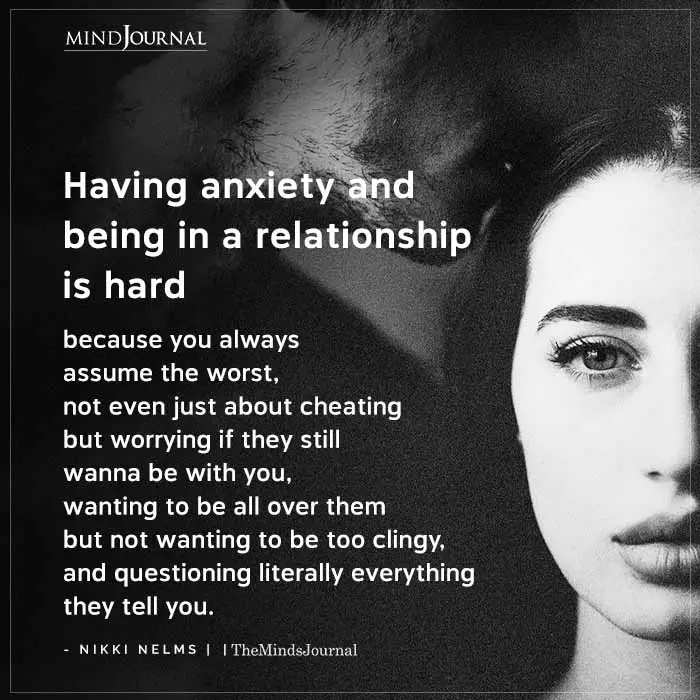
A mindfulness-based meditation practice is helpful in dealing with anxiety. Journal your feelings and thoughts that underlie your anxiety. Be aware of negative self-talk and don’t judge yourself. Discuss your feelings with your partner in an assertive manner without blame.
Practice self-care with sufficient sleep and regular exercise to balance your mood. Develop hobbies, interests, and other friendships to not be so dependent on your intimate relationship.
Some people may require medication. Drugs for anxiety include SSRI’s and SNRI’s.
© 2022 Darlene Lancer
Written By Darlene Lancer
Originally Appeared On What Is Codependency




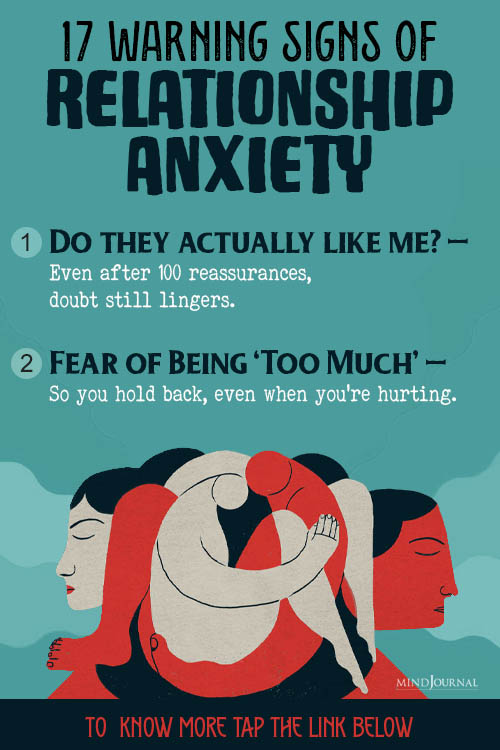

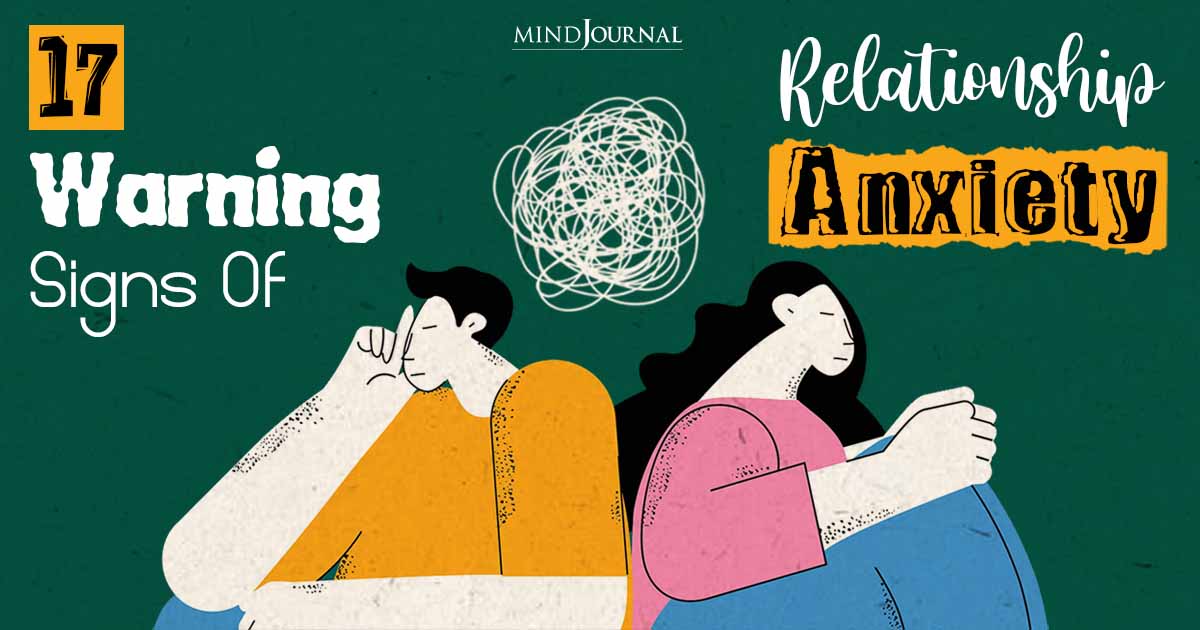

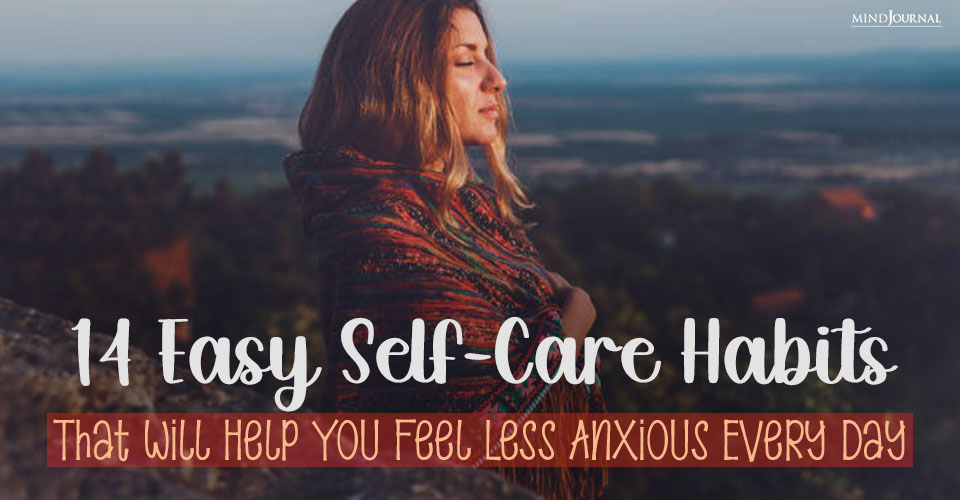
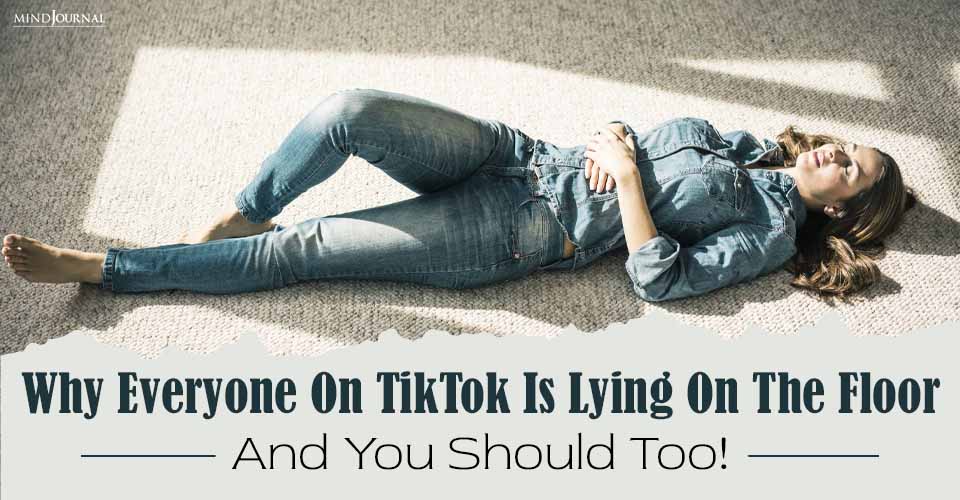
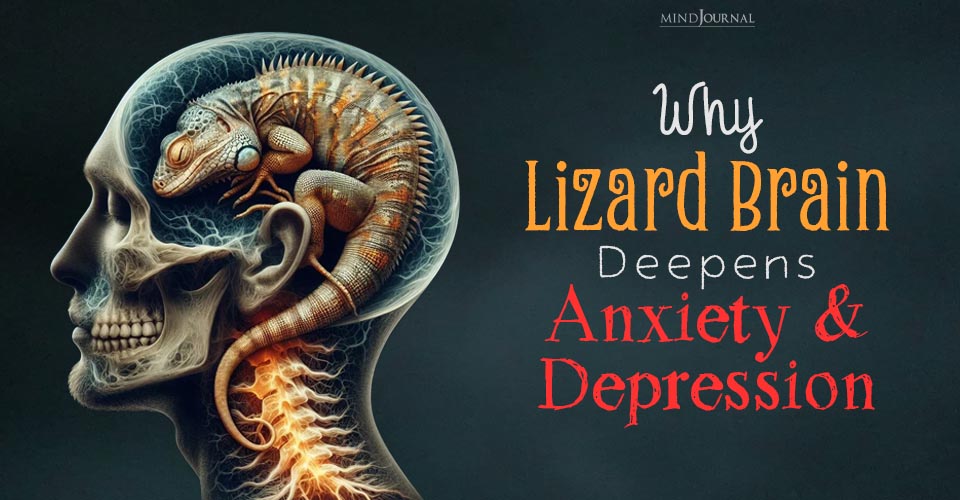



Leave a Reply